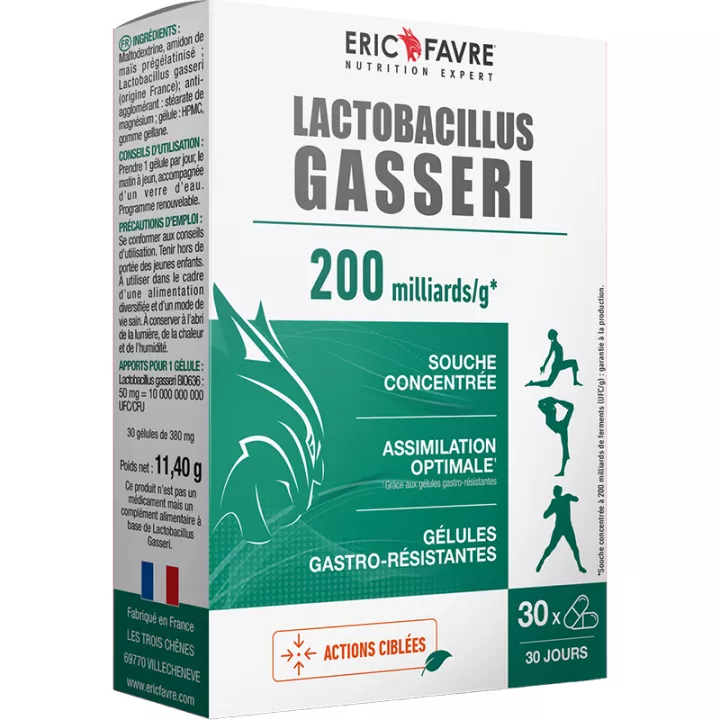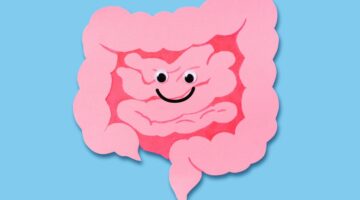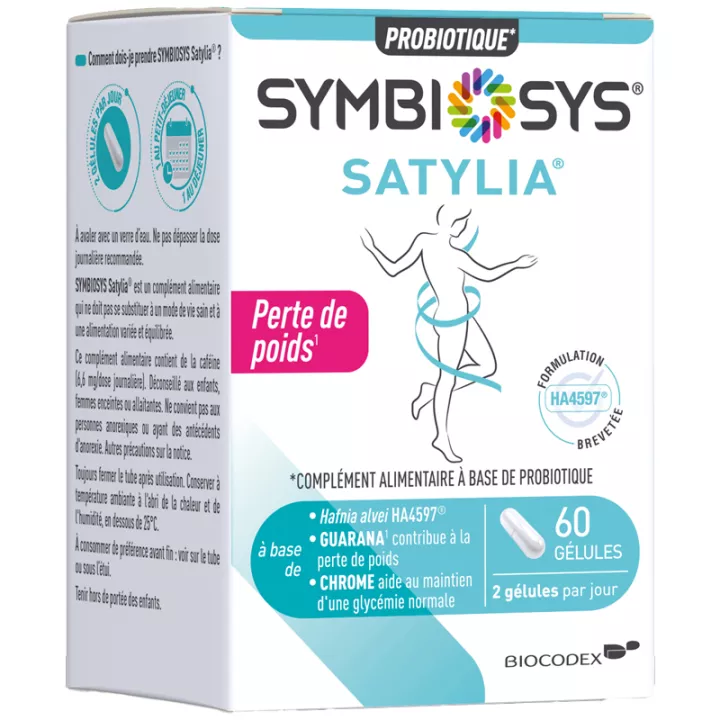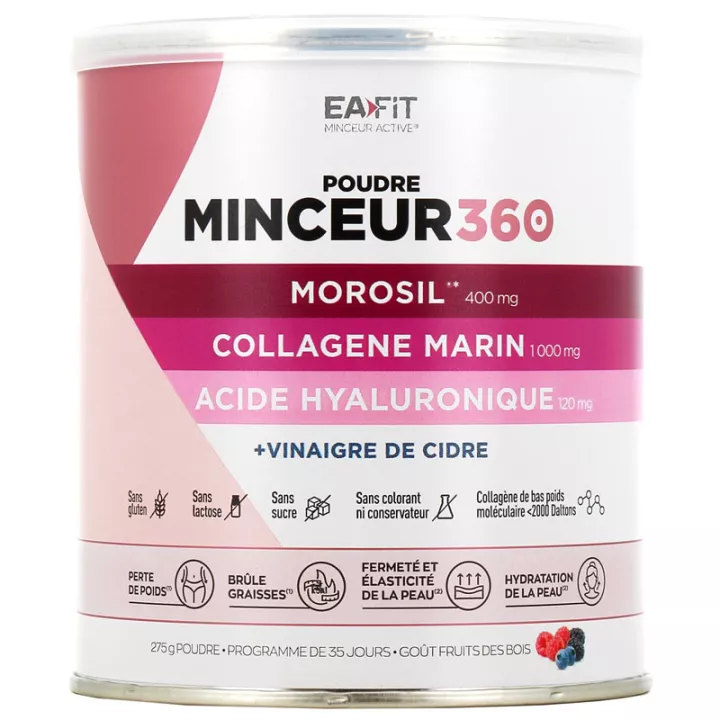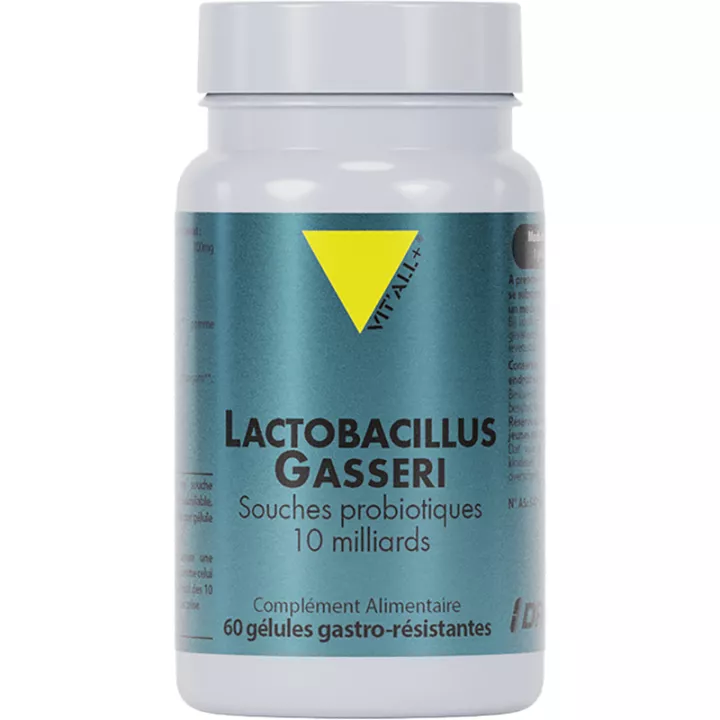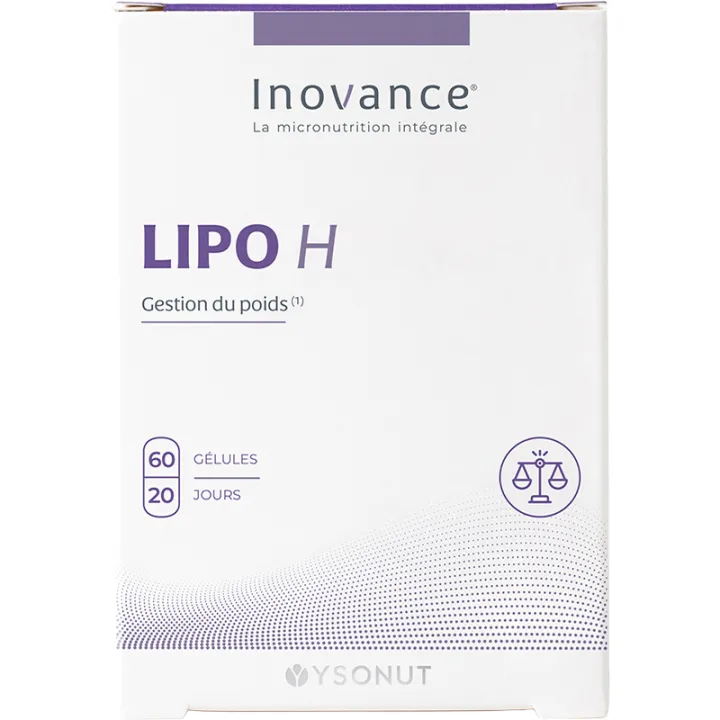What are the benefits of Eric Favre Lactobacillus Gasseri?
Lactobacillus gasseri is a species of lactic acid bacteria in the Lactobacillaceae family. It forms part of the microbiota of human oral, vaginal and intestinal mucosa.
Eric Favre's Lactobacillus Gasseri 200 billion is a dietary supplement based on a unique probiotic with slimming benefits. Lactobacillus Gasseri bacteria are an ideal slimming ally for those seeking to eliminate localized belly fat.
- Ultra-concentrated: 10 billion probiotics in 1 capsule
- Gastro-resistant vegetarian capsules
- Optimum assimilation
Lactobacillus Gasseri bacteria are an ideal slimming ally for those seeking to eliminate localized belly fat. Its effectiveness was scientifically measured in a Japanese study.
- Gastro-resistant capsules
- Optimum assimilation
- 200 billion dose strain
- Eric favre's patented capsules protect bacteria from stomach acidity. The active ingredients are thus preserved and better assimilated by the intestines.
We also offer Eric Favre Thé Vert Bio 20 Sachets at the best price in our online pharmacy.
How do I use these probiotics?
Take 1 DRCaps® capsule a day, in the morning on an empty stomach, with a glass of water. Renewable program
Give your opinion on the recommendations for use and dosage of ERIC FAVRE Lactobacillus Gasseri 10 Milliards 30 capsules with our partner Verified opinions after your purchase.
What are the side effects and contraindications?
- Follow instructions for use.
- Keep out of reach of young children.
- Use as part of a diversified diet and healthy lifestyle.
- Store away from light, heat and moisture.
What is the composition of this supplement?
Bulking agents: maltodextrin, pregelatinized corn starch; Lactobacillus gasseri; anti-caking agent: magnesium stearate; capsule: HPMC, gellan gum.
Recommended amounts per 1 DRCaps® capsule:
Lactobacillus Gasseri 50 mg = 10,000,000,000 CFU
Available at
Box of 30 capsules.
Your expert pharmacist's advice
Lactobacillus Gasseri is a probiotic that has been the subject of recent studies. A Japanese study (* "Regulation of abdominal adiposity by probiotics (Lactobacillus gasseri SBT2055) in adults with obese tendencies in a randomized controlled trial") demonstrated its effects on sugar regulation, weight loss and abdominal fat. L. gasseri thickens the intestinal mucosal barrier and modifies chemical signals from the digestive system, changing the way the body processes fat and sugars. This probiotic therefore complements a healthy diet and physical activity to boost weight loss .
The intestinal microbiota, also known as the gut flora, plays a crucial role in regulating body weight and metabolism. Made up of billions of micro-organisms, such as bacteria, archaea and fungi, the microbiota exerts a significant influence on the way our body stores and metabolizes nutrients. This complex interaction between the microbiota and the human host has led to growing interest in understanding its impact on weight loss and gain.
Influence on nutrient absorption
The intestinal microbiota plays a role in the breakdown and absorption of nutrients from the diet. Certain bacterial strains have the ability to break down complex dietary fibers into simpler compounds, such as short-chain fatty acids. These fatty acids are then absorbed by the intestine and can influence the sensation of satiety, regulating the amount of food consumed.
Fatty acid metabolism
Studies have shown that the microbiota can influence fatty acid metabolism. Certain bacterial strains are associated with increased production of short-chain fatty acids, which are involved in regulating lipid metabolism and blood sugar levels. These short-chain fatty acids can also influence the release of appetite-regulating hormones such as leptin and ghrelin.
Inflammation and weight regulation
An unbalanced microbiota, known as dysbiosis, has been associated with a chronic inflammatory state. Chronic inflammation can interfere with weight regulation mechanisms by disrupting hormone signaling and altering the metabolic response to insulin. This can promote excessive fat storage and weight gain.
Effect on appetite-regulating hormones
The microbiota can influence the production of hormones involved in regulating appetite and satiety. For example, certain intestinal bacteria can stimulate the production of hormones that send satiety signals to the brain, thereby reducing food intake. On the other hand, an imbalance in the microbiota could lead to excessive production of appetite-stimulating hormones, potentially leading to weight gain.
Response to diet
Research suggests that the composition of the microbiota can influence how our bodies respond to different diets. Some individuals may lose weight more effectively on a specific diet due to the interaction between their microbiota and the nutrients consumed. This discovery underlines the importance of tailoring diets to each individual's microbiota composition.

